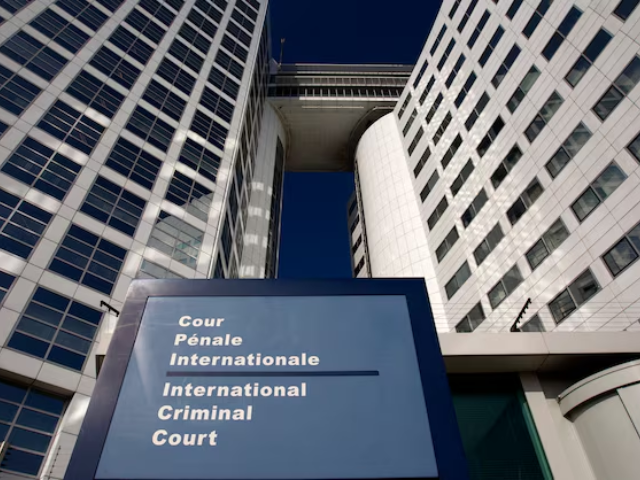
The US House of Representatives voted on Thursday to sanction the International Criminal Court to protest its issuing arrest warrants for Israeli Prime Minister Benjamin Netanyahu and his former defense minister over Israel's campaign in Gaza.
The vote was 243 to 140 in favour of the "Illegitimate Court Counteraction Act," which would sanction any foreigner who investigates, arrests, detains or prosecutes US citizens or those of an allied country, including Israel, who are not members of the court.
Forty-five Democrats joined 198 Republicans in backing the bill. No Republican voted against it.
“America is passing this law because a kangaroo court is seeking to arrest the prime minister of our great ally, Israel,” Representative Brian Mast, Republican chairman of the House Foreign Affairs Committee, said in a House speech before the vote.
The House vote, one of the first since the new Congress was seated last week, underscored strong support among President-elect Donald Trump's fellow Republicans for Israel's government, now that they control both chambers in Congress.
Trump will be sworn in on Jan. 20 for a second term as president.
The Senate's newly appointed Republican majority leader, John Thune, has promised swift consideration of the act in his chamber so Trump can sign it into law shortly after taking office.
The ICC is a permanent court that can prosecute individuals for war crimes, crimes against humanity, genocide and the crime of aggression in member states or by their nationals.
The court has said its decision to pursue warrants against the Israeli officials was in line with its approach in all cases, based on an assessment by the prosecutor that there was enough evidence to proceed, and the view that seeking arrest warrants immediately could prevent ongoing crimes.
This is not the first time theat the US has blocked the ICC from investigating reported war crimes.
Washington had earlier imposed sanctions on ICC prosecutor Fatou Bensouda and Phakiso Mochochoko, head of the ICC's Jurisdiction Division, in response to the court's investigation into alleged war crimes by US forces in Afghanistan.
Secretary of State Mike Pompeo announced that the sanctions, authorised by President Trump in June 2020, included asset freezes and travel bans. Pompeo warned that supporters of Bensouda and Mochochoko could also face sanctions.
The ICC dismissed the move as an attack on its judicial independence, calling the sanctions "unprecedented" and harmful to the rule of law. The tensions followed the ICC's decision to investigate war crimes committed by the Taliban, Afghan military, and US forces in Afghanistan.
The UN expressed concern, urging that the sanctions respect agreements allowing officials like Bensouda access to the UN. Human rights groups condemned the sanctions as a political move to obstruct justice. The ongoing conflict highlighted the growing rift between the US and international efforts to prosecute war crimes.
Congressional Republicans have been denouncing the ICC since it issued arrest warrants for Netanyahu and his former defense chief Yoav Gallant, accusing them of war crimes and crimes against humanity in the 15-month-long Gaza conflict. Israel rejects the allegation
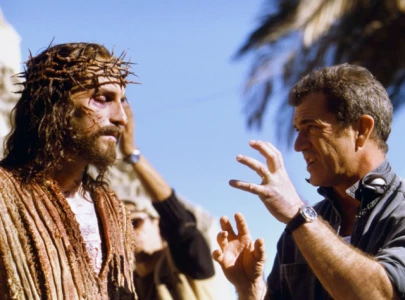




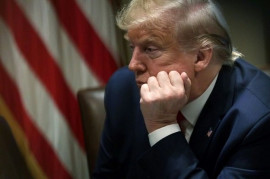

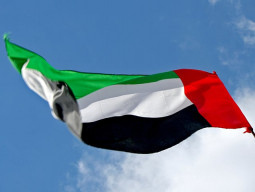

1736511575-0/Untitled-design-(8)1736511575-0-270x192.webp)
1736495887-0/sidra--(63)1736495887-0-270x192.webp)
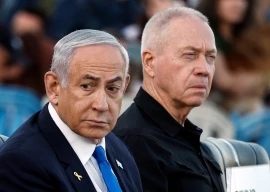
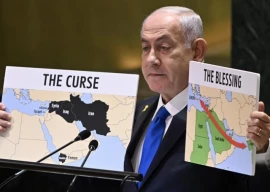
1736332856-0/Untitled-design-(20)1736332856-0-270x192.webp)

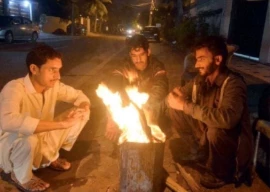
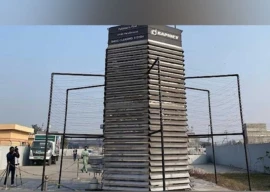
1736334465-0/sidra--(45)1736334465-0-270x192.webp)






COMMENTS
Comments are moderated and generally will be posted if they are on-topic and not abusive.
For more information, please see our Comments FAQ